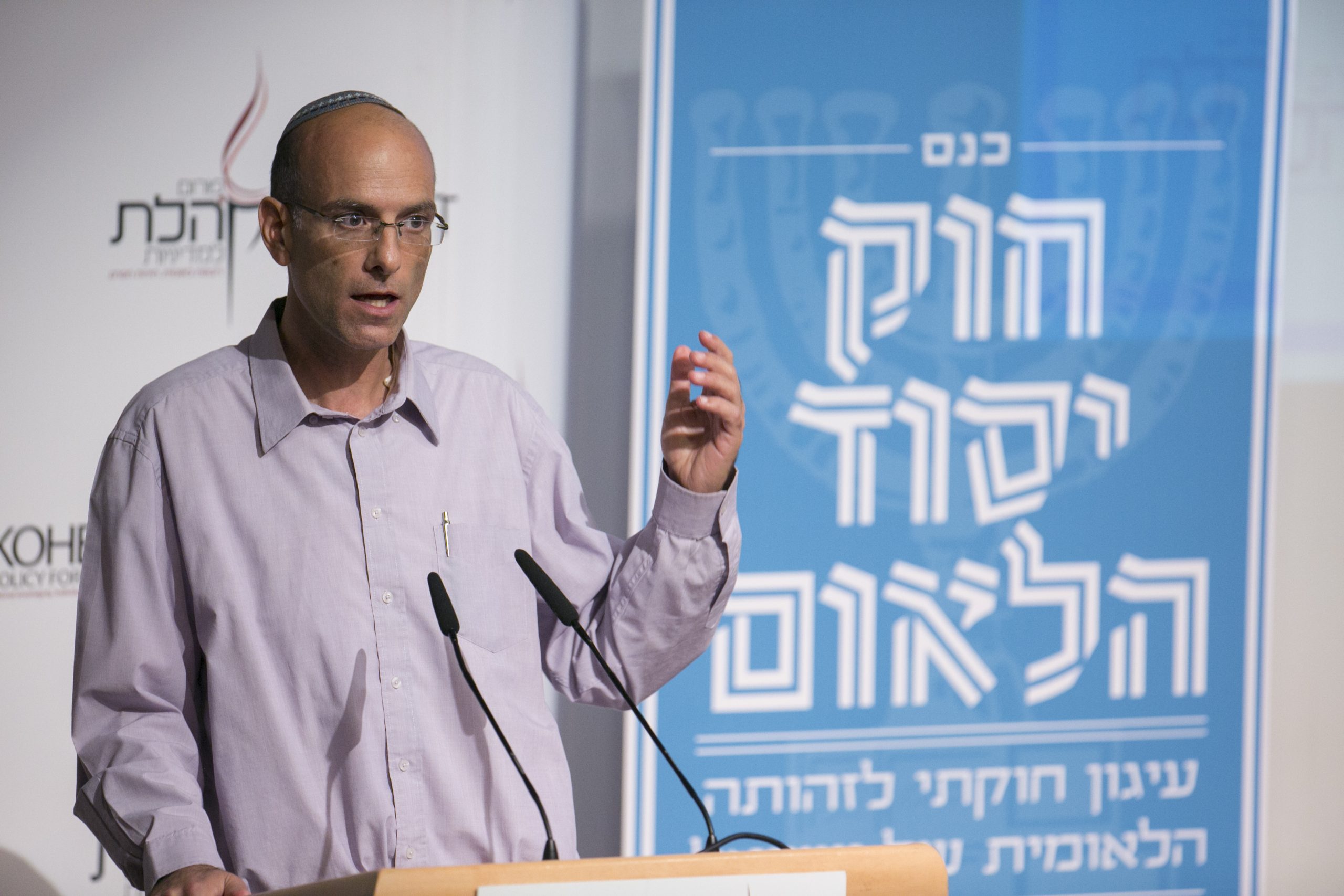An entire generation of legislative silence came to an end with the enactment of the nation-state law. The Knesset finally made a clear ethical statement: “The State of Israel is the nation-state of the Jewish people” and the “right to exercise self-determination in the State of Israel is unique to the Jewish people.”
In light of its unequivocal wording, the nation-state law provided its opponents with the opportunity to attack it head-on, but their position has been ambiguous. There have been calls among the law’s opponents to anchor the Declaration of Independence in a Basic Law, but seeing as the nation-state law does indeed enshrine most of the principles of the Declaration of Independence, and the rest of its principles, including equality, are already anchored in Basic Law and Israeli case law, the public discourse is now hungry for a substantive alternative to the nation-state law. Dear opponents of the law, what, may I ask, is the alternative?
A number of petitions against the nation-state law have been submitted to the High Court of Justice. Let us ignore for the time being the question as to what authority a court, which gets it authority from a Basic Law, has to sever the branch upon which it sits and deliberate the disqualification of a Basic Law. The petitions make an important contribution to the public discourse, as they force the petitioners to present an alternative position to the law they attack. The first in a string of petitions to the court came from by the Druze Lawyers’ Forum, which made interesting if irrelevant claims about the law. This was followed by a thorough and well-founded joint appeal by the Joint Arab List, the Arab Higher Monitoring Committee and Adalah – the Legal Center for Arab Minority Rights in Israel, which put an end to the ambiguity and presented without qualification an intelligent and clear alternative to the nation-state law.
The concept of a nation-state in general and the Zionist idea in particular, rely on the differentiation between individual and collective rights, in which all citizens are equal regardless of religion, race or sex, and the national self-determination in which there is no equality of rights and which affords the right to self-determination to one nation only in any given nation-state. The Joint Arab List’s petition flat-out rejects this differentiation, and in the name of the principle of equality, rejects the very right to self-determination, even though these petitioners paradoxically recognize the right to Palestinian national self-determination. To their mind, even at the national level, “there is no nation whose rights are superior to those of another nation,” and prioritizing the Jewish people at a national level “violates the collective right to dignity.” The right to dignity, the petitioners argue, is not just the individual right of every citizen, but the Arab Israelis’ national right for the State of Israel to be a binational state.
In theory, the Joint Arab List presents only two legitimate alternatives in its view to how the state should relate to the national idea – or to civilian nationalism, a “state of all its citizens,” in the style of the United States, which is blind to people’s affiliation to natural nations, or a binational or multinational state, which affords equal self-determination to both majority and minority groups.
The petitioners condemn the Zionist idea of a nation state, adopted by numerous countries around the world, including in Western Europe, as a racist concept the likes of which have not been since South Africa’s apartheid regime. The petitioners as a result object not only to the clause in the law that allows for the prioritization of Jewish settlements, which does indeed demand in-depth discussion, but also to the clause that anchors the Law of Return in a Basic Law and the clauses that establish the state’s Jewish symbols, anthem and official holidays.
In the past, the court invalidated a decision by the Central Elections Committee to prevent the Balad party from running in the elections, claiming that its call for a “state of all its citizens” was directed only at the individual level and not the national level. Now the tables have turned and the court wants to deliberate the nation-state law because it negates the idea of a state of all its citizens on the national level.
The petition contributes to the Israeli discourse a clear alternative to the nation-state law. All that remains is for the Israeli public to choose which side they are on.
(First published in Israel Hayom, 16 August 2018).




